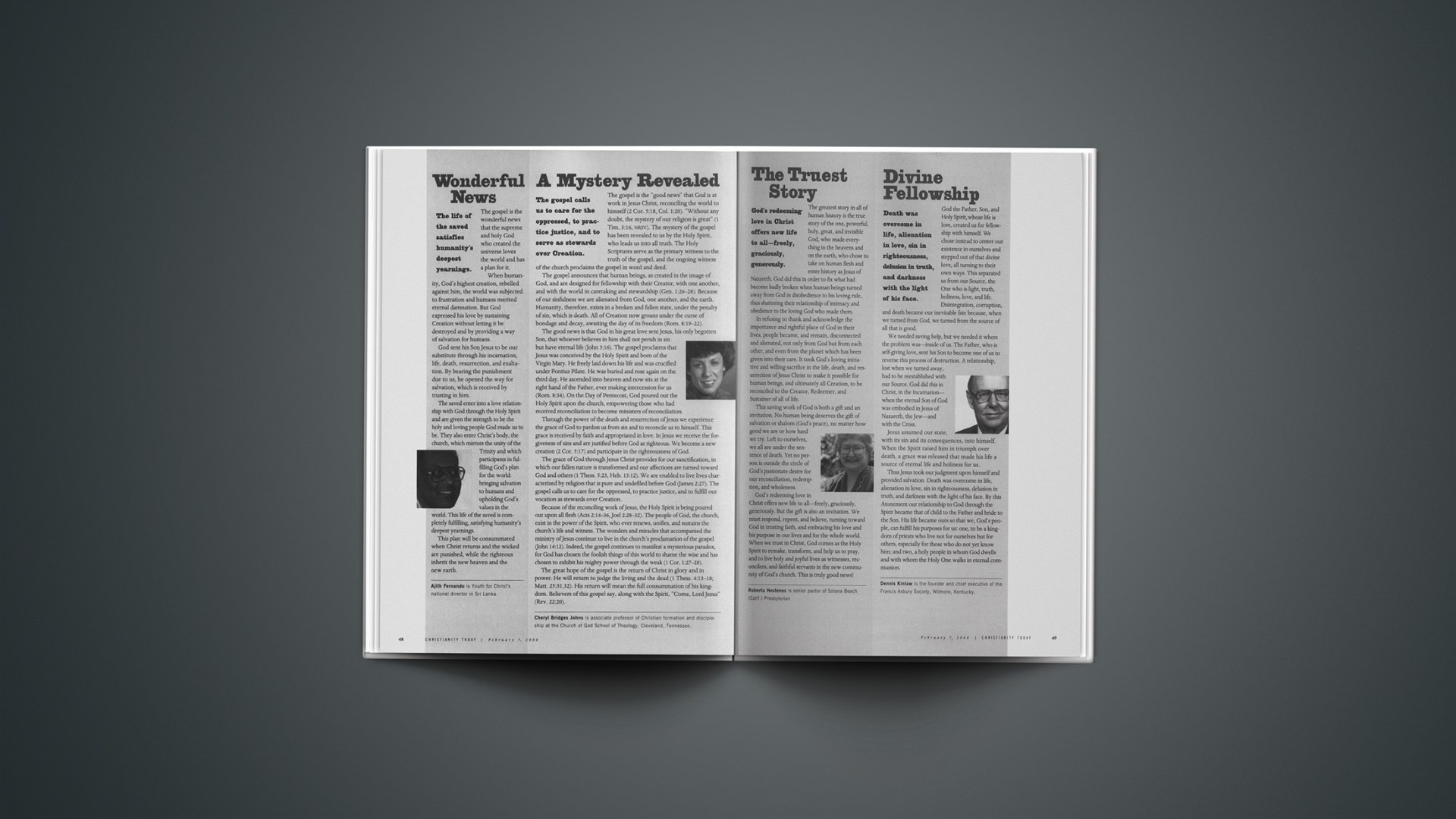Intro | Part 1 | 2 | 3 | 4 | 5 | 6 | 7 | 8 | 9
A Mystery Revealed
The gospel calls us to care for the oppressed, to practice justice, and to serve as stewards over Creation.
The gospel is the “good news” that God is at work in Jesus Christ, reconciling the world to himself (2 Corinthians 5:18, Colossians 1:20). “Without any doubt, the mystery of our religion is great” (1 Timothy 3:16, NRSV). The mystery of the gospel has been revealed to us by the Holy Spirit, who leads us into all truth. The Holy Scriptures serve as the primary witness to the truth of the gospel, and the ongoing witness of the church proclaims the gospel in word and deed.
The gospel announces that human beings, as created in the image of God, and are designed for fellowship with their Creator, with one another, and with the world in caretaking and stewardship (Genesis 1:26-28). Because of our sinfulness we are alienated from God, one another, and the earth. Humanity, therefore, exists in a broken and fallen state, under the penalty of sin, which is death. All of Creation now groans under the curse of bondage and decay, awaiting the day of its freedom (Romans 8:19-22).
The good news is that God in his great love sent Jesus, his only begotten Son, that whoever believes in him shall not perish in sin but have eternal life (John 3:16). The gospel proclaims that Jesus was conceived by the Holy Spirit and born of the Virgin Mary. He freely laid down his life and was crucified under Pontius Pilate. He was buried and rose again on the third day. He ascended into heaven and now sits at the right hand of the Father, ever making intercession for us (Romans 8:34). On the Day of Pentecost, God poured out the Holy Spirit upon the church, empowering those who had received reconciliation to become ministers of reconciliation.
Through the power of the death and resurrection of Jesus we experience the grace of God to pardon us from sin and to reconcile us to himself. This grace is received by faith and appropriated in love. In Jesus we receive the forgiveness of sins and are justified before God as righteous. We become a new creation (2 Corinthians 5:17) and participate in the righteousness of God.
The grace of God through Jesus Christ provides for our sanctification, in which our fallen nature is transformed and our affections are turned toward God and others (1 Thessalonians 5:23, Hebrews 13:12). We are enabled to live lives characterized by religion that is pure and undefiled before God (James 2:27). The gospel calls us to care for the oppressed, to practice justice, and to fulfill our vocation as stewards over Creation.
Because of the reconciling work of Jesus, the Holy Spirit is being poured out upon all flesh (Acts 2:14-36, Joel 2:28-32). The people of God, the church, exist in the power of the Spirit, who ever renews, unifies, and sustains the church’s life and witness. The wonders and miracles that accompanied the ministry of Jesus continue to live in the church’s proclamation of the gospel (John 14:12). Indeed, the gospel continues to manifest a mysterious paradox, for God has chosen the foolish things of this world to shame the wise and has chosen to exhibit his mighty power through the weak (1 Corinthians 1:27-28).
The great hope of the gospel is the return of Christ in glory and in power. He will return to judge the living and the dead (1 Thessalonians 4:13-18; Matthew 25:31,32). His return will mean the full consummation of his kingdom. Believers of this gospel say, along with the Spirit, “Come, Lord Jesus” (Revelation 22:20).
Cheryl Bridges Johns is associate professor of Christian formation and discipleship at the Church of God School of Theology, Cleveland, Tennessee.
Next: The Truest Story: Roberta Hestenes

Copyright © 2000 Christianity Today. Click for reprint information.










